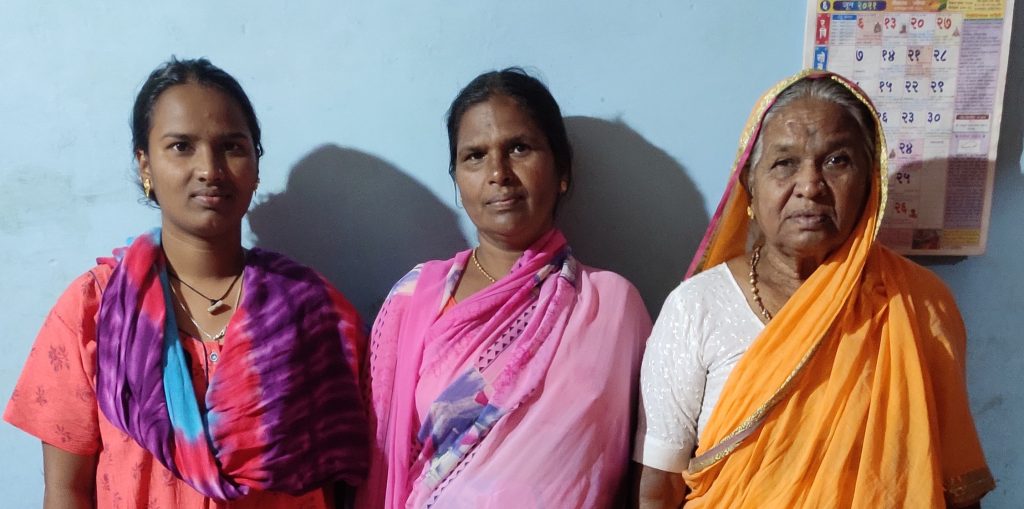What if women stopped menstruating? The very world would cease to exist.. It’s a pathway to bring the most conscious beings called humans into existence. But ironically, any discussion on this beautiful natural phenomenon of the body is taboo, and has adversely impacted girls and women in our society for generations.
Every month, 1.8 billion women across the world menstruate. Millions of these girls, women, transgender men and non-binary persons cannot manage their menstrual cycle in a dignified and healthy way. The onset of menstruation is a new phase of body and mind, but it often gets stigmatised and socially excluded. It is an unspoken subject; therefore, many women and girls are unaware of its functioning, leading to many misbeliefs.

The absorbent to collect menstrual blood differed as per the times. In ancient and mediaeval times, women were not using anything and their clothes soaked in the discharge.. There are references that they used to wear sweet-smelling herbs around their wrists and neck to lower the menstrual blood smell. There are references to using a Hoosier Sanitary Belt that they put around the waist. Since menstruation is associated with shame and taboo and women were considered untouchables during this cycle, they never discussed the proper absorbents to protect and ease the process. Even today, many women use an old cloth as absorbent and hide it from public view. It is kept in unhygienic conditions, dried in inadequate, or hidden under other material. This practice has created massive health issues for women.
In the modern era, disposable sanitary pads were introduced. Such products have wood pulp, plastic, and many chemicals such as polypropylene and polyethylene to enable lick-free self-adhesive pads. Since it is a disposable product, women were relieved from the pain they have been through. But the fact remains that now female genitals are closely associated with loaded chemicals and plastic. It is harming not only the female body but also the mother earth. The entire content of disposable pads is plastic which takes approximately 500-800 years to disintegrate after disposal. Assuming one billion DSNs are disposed of yearly, handling menstrual waste becomes a colossal task. This also contributes to the waste crisis overall.
To resolve this issue, nowadays, incinerators have been introduced to burn used pads. Over the years, disposable pads have spoiled the soil, and the new innovation is now polluting the air. With burning, all the pollution goes into the air. The women and girls residing in low-income communities are more vulnerable as they don’t even have safe and private access to menstruation, so they often depend on public or community sanitation facilities in slum communities.

We at SA, rigorously work and advocate for home toilets. Our ‘One Home One Toilet ‘project has reached more than 26,500 households across seven cities of Maharashtra and has resolved this concern for many women and girls. Still, disposing of the used pads is an issue. It is observed that these pads get dumped in toilet windows or a toilet pan directly, resulting in choked drains and unhygienic health concerns for many.
Considering all of it, Shelter Associates is committed to handling this crisis in a unique way. We are promoting sustainable menstruation in the communities we are working with. breaking the taboos and celebrating it publicly. SA especially focuses on young women and adolescent girls and invites them for in-depth workshops on menstrual health. Such workshops explain the basic body anatomy and reproductive organs and their functioning. Most of the time, it is observed that women are unaware of how their genitals are from the outside or inside. There is a discussion around various misbeliefs about menstruation that gets answered with scientific information in workshops.
SA consciously tries to switch menstruating women from using hazardous disposal pads towards adopting sustainable and eco-friendly menstrual hygiene products such as biodegradable sanitary napkins, reusable cloth pads, and menstrual cups.

Women are introduced to eco-friendly menstrual hygiene products like menstrual cups and cloth pads
Milestones of this initiative:
- More than 2,200 women have switched to sustainable products such as biodegradable pads, cloth pads, and menstrual cups.
- Out of which, 600 women switched to using a menstrual cup, which means 5,76,000 pads are now saved from going to dumping sites while using this one cup.
- On average, one box of pad costs Rs. 50. These women have saved Rs. 28,80,000 for the next eight years.
- 529 women have used biodegradable products, which would take six to 12 months to decompose otherwise.
- 86 women have started using cloth pads, which means we saved pollution by stopping disposing of more than 10000 pads.
- Together they saved more than Rs. 1,00,000

We look forward to making each community achieve zero-waste menstruation. We hope this campaign reaches to more cities, states and eventually more nations. We need conscious actions towards making a difference in not only human lives but our environment as well. We are interdependent by nature, and it’s time to take action now to ensure synergy between all the living beings on our planet and who better than the woman to take the lead!

– Blog is written by Dhanshree Gurav, Director (WASH), Shelter Associates
